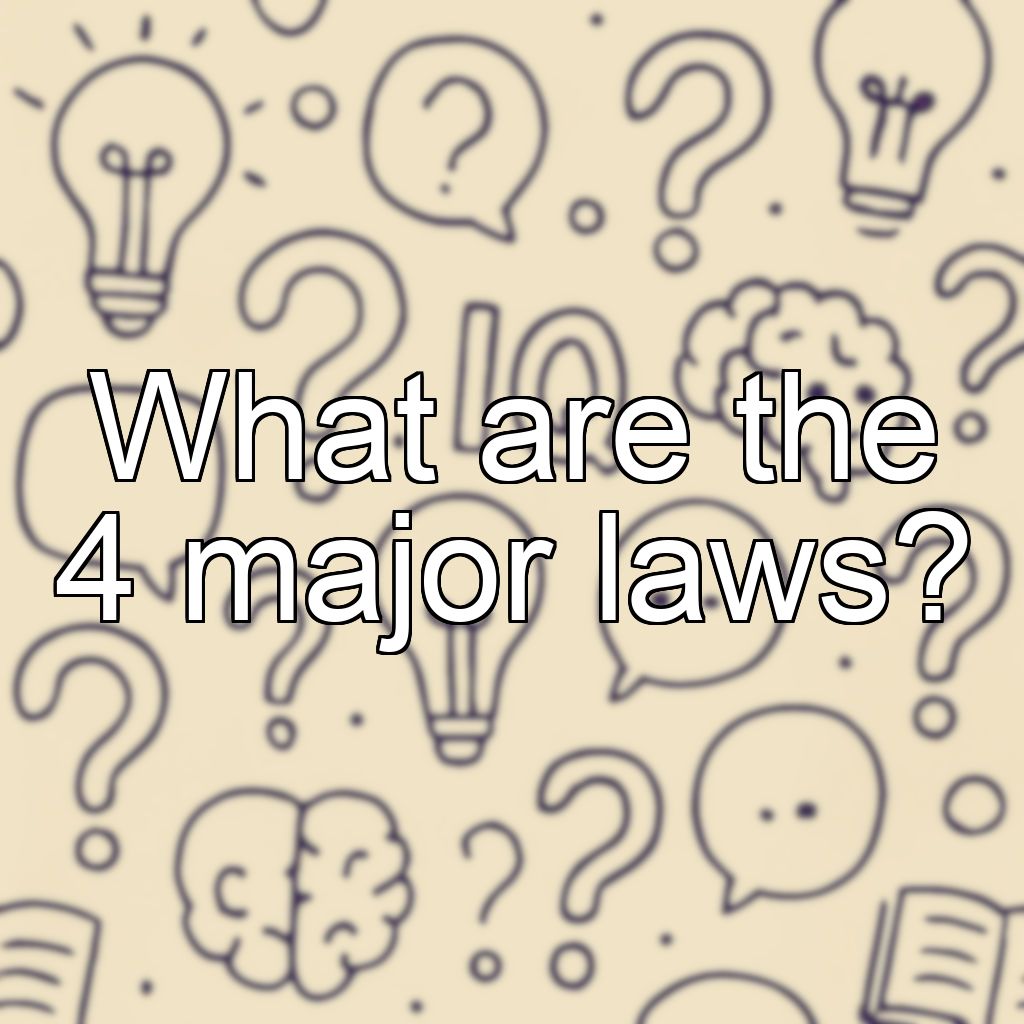What are the 4 major laws?

The Four Major Types of Law
In many legal systems, particularly in the United States and similar common law countries, law is commonly divided into four major categories. These are:
- Constitutional Law
This governs the structure and function of government institutions and the relationship between the state and individuals. It is based on the nation's constitution and includes the protection of fundamental rights.
- Statutory Law
Statutory law consists of laws enacted by legislative bodies, such as Congress or Parliament. These are written laws passed by government and must be followed by citizens and enforced by courts.
- Administrative Law
This area covers the rules and regulations created and enforced by government agencies. Administrative law governs the activities of administrative agencies of government, such as the Environmental Protection Agency (EPA) or the Food and Drug Administration (FDA).
- Case Law (Common Law)
Case law is created by judicial decisions in courts. These precedents are used to interpret statutes and the constitution, and guide the resolution of future cases with similar circumstances.
These four types of law work together to form the legal framework that governs society and ensures order and justice.